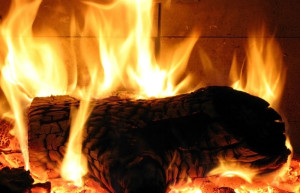There are few things more pleasurable than coming in from the cold and building a roaring fire. In order to fully enjoy your fireplace, it is important to keep in mind the maintenance that keeps you safe and warm. Hiring a certified chimney sweep to inspect your heating system once a year is critical. This will remove the worries from your mind. After all, you have enough worries!
Why shell out hard-earned money to hire a sweep? There are many reasons; but they mainly are the same reasons you’d take a car that wasn’t running properly to a mechanic. By the time there is a problem with your car, it is sometimes more costly and can endanger your safety. Sweeps, like mechanics can see things you don’t notice. And a set of professional eyes on your chimney may see smaller problems before they become costly repairs. Some of the things your sweep will be looking for are:
- “Puffy” or “honey combed” creosote
- Distorted metal of the damper, metal smoke chamber connector pipe or factory-built metal chimney
- Cracked or malformed flue tiles.
- Discolored and/or damaged rain cap
- Heat-damaged TV antenna attached to the chimney
- Creosote flecks and pieces on the roof or ground
- Roofing material broken from hot creosote
- Fissures in exterior masonry
- Evidence of smoke escaping through mortar joints of masonry.
Here are 5 tips for how to best keep your system safe and efficient:
- Have a certified chimney sweep or city-paid building inspector look at your whole system.
- Have your chimney professionally cleaned and inspected.
- Do everything you can to prevent water from entering the system. Water can cause damage to the structural integrity of your chimney and increase the odds of a chimney fire.
- Keep your eyes and ears open and if you smell an odor, this could indicate a blockage in your chimney or excess creosote.
- Learn as much as you can about creosote. The Chimney Safety Institute of America also provides a great deal of useful information for homeowners.
